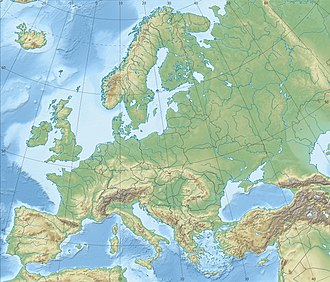Location in the Baltic Sea region | |
| Geography | |
|---|---|
| Location | Baltic Sea |
| Coordinates | 58°27′N23°15′E / 58.450°N 23.250°E |
| Archipelago | West Estonian archipelago |
| Area | 2.8 ha (6.9 acres) |
| Length | 1 km (0.6 mi) |
| Administration | |
| County | Saare County |
| Additional information | |
| Time zone |
|
Anulaid (alternatively: Aru saar and Anu saar) [1] is an uninhabited island belonging to the country of Estonia.
Anulaid is 1 km long and covers 2.8 ha in area. It is located on the northwest coast of Muraja Bay off the southeastern part of Saaremaa and administratively belongs to the village of Kakuna in Saaremaa Municipality. Anulaid belongs to the Kahtla-Kübassaare Hoiuala Limited-Conservation Area and is under nature protection. [2]

